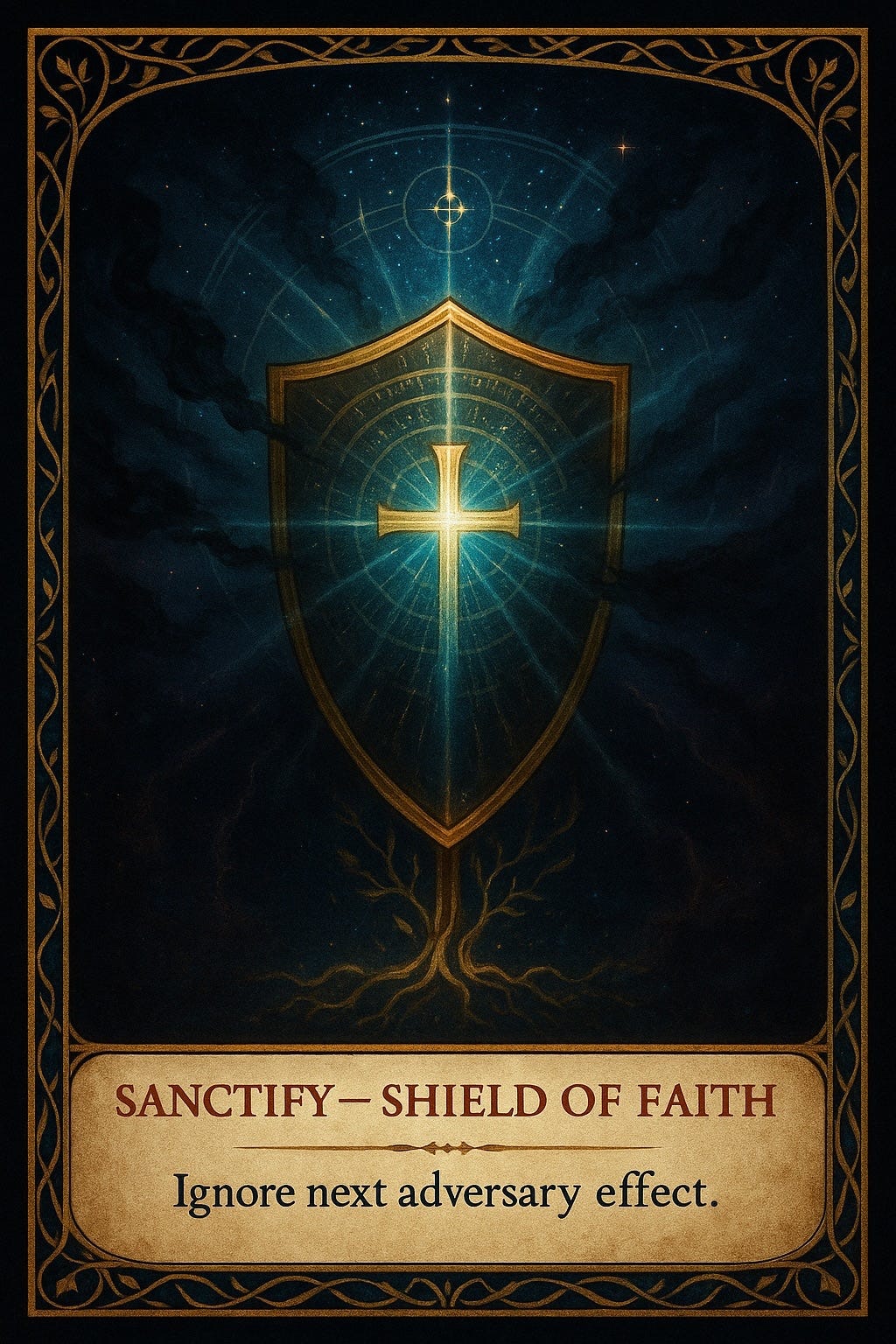The Medium is the Weapon
How Screened-In Livijg Harnessed Virtue Against Itself
5G Warfare and the Invisible Battlefield
Military strategists speak of “fifth-generation” (5G) warfare: conflict fought not with bullets but with narratives, symbols, and ambient systems. The goal is not to kill an enemy but to reshape how that enemy thinks, feels, and speaks—to pre-program his choices before he makes them. The battlefield is the home, the mind, the family.
Television, long before social media, was the first truly domestic 5G platform. It was not only a pipeline of information but a total sensory environment: light, sound, rhythm, and story rehearsed daily in living rooms. Media theorist Marshall McLuhan warned that “the medium is the message”—meaning that the structure of the medium itself carries a worldview, even before you look at the content.
Men quibble over McLuhan’s copula. But the Beast eats them all.
The Dialect Shift: From Gospel to Cultic Vernacular
Christianity historically lives by embodied practice—table fellowship, public reading, hymns, sacraments, patience, rebuke, and mercy in actual relationships. TV detached those words from practice and re-encoded them as sentimental tropes.
• Patience (μακροθυμία) once meant long-suffering, disciplined endurance. TV scripts recast it as willngness to endire incivility. “Blessed are the Door Mats,” we are judged.
• Mercy (ἔλεος) once meant covenantal steadfastness combined with impartiality. TV recast it as indulgence in passion and feeling without boundaries. “Love is love, you mansplaining white islamphobe!”
• Authority became buffoonery; the father is Homer Simpson, the pastor is a hypocrite, the mother a martyr ready with a quick scold or second-guess, the child the “wise” cynic, ever qupping dark arrows from the communist corners.
By decades of repetition, these tropes became a “home dialect”—a self-policing vernacular inside Christian households. Congregants began to measure one another by TV’s script (“Don’t be judgmental,” “Real love is unconditional acceptance”) rather than by the biblical text.
If you dont see it in your circles, then you’re not looking yet.
Egalitarian Misanthropy as Cultural Code
The promise of “equality” on screen often masked a contempt for men. Everyone is “equal,” therefore no one is exceptional, therefore all are disposable, and men, specifically, are requred to think much less of thenselves at every adjudicatin.
This is not biblical impartiality but flattened hierarchy. Christianity without its creational distinctions—husband/wife, parent/child, elder/younger—becomes an emotive blur of slogans, easily steered by advertising and political messaging.
Thus TV did not need to preach atheism. It only needed to invert virtues into their caricatures and frame hierarchy as inherently oppressive. The result: a Christianity began calling good “evil” some time in the 1940’s, and hasn’t looked back since.
Media Ecology: The Medium as Environment
Media ecology (Postman, McLuhan, Ong) teaches that media are environments. They do not just deliver messages; they shape the very sensory ratios of a culture. A culture saturated in print thinks one way; a culture saturated in screens thinks another.
Television’s environment rewards:
• Emotional speed over reflective depth.
• Image over text.
• Reaction over contemplation.
• Story arcs over doctrine.
Once this environment dominates, patience, mercy, and long memory become liabilities. The faithful viewer learns to expect constant novelty and immediate payoff—the opposite of biblical discipleship. “Getting comfortable being uncomfortable,” is now opey discouraged as toxic, oppressive and violent. “Take up your cross,” is just fancy talk for be more amenable to hen-pecking.
Recognizing the Weaponization
When patience and mercy are reframed as passivity, the target population becomes docile yet easily triggered to do battle with itself. When mutiny is comedy, fathers and men lose legitimacy. When mercy is limited to indulgence, boundaries vanish and the barbarians storm the gates. Cognitive domain shaping keeps the shield soft so that the spear need merely scratch with a poisoned tip, and the worst constrcution is all a people may perceive.
Counter-Measures: Media Ecological Literacy for Christians
If TV is the 5G battlefield, then literacy is counter-intelligence. Three steps:
1. Name the Medium. Not just the screen but its godless style. Teach your household that laugh tracks, camera cuts, and trans archetypes are not the same in the real world as the screens have taught us to project. Once seen, the spell shatters. No one wants to be Marge, Bart, Lisa or Maggie either.
2. Re-inhabit Original Virtues. Study patience, mercy, authority, and love in Hebrew and Greek. Preach them as active virtues, not passive emotions. Reject emotional passivity in favor of calm conflict settled by godly orders.
3. Create Alternative Rituals. Replace screen time with shared reading, hymn-singing, outdoor labor, and table fellowship. The body re-learns what the medium had un-learned.
4. Teach Hierarchy without Partiality. Distinguish between unjust favoritism (forbidden) and God-ordained order (commanded). Order is not oppression.
From Victim to Christening
Television was the prototype of today’s algorithmic feeds. It catechized millions into a faux-Christian anti-Fatherhood dialect without ever declaring open war (until recently). Now that 5G warfare is out of the bag, the target is adapting. Whatwasonce spoken in corners is shouted from rooftops.
“White is evil.”
“White men are the problem with this country.”
Christians do not have to treat such bigotry as acceptable for the sake of nostalgia. Nor ought we panic. We are bearers of the Wordv called to publish the resurrection of Jesus Christ our King, against all witches, magics and of medium(s) of these gray and latter days.
From sanctuaries to schools, the printing press inagurated media literacy for the sake of the Kingdom. Our brave, new cognitive frontier is no different a a war of principalities and powers.
That We Already Won
Does Not Mean We Ought Not Fight Back
It Only Means the Weapons of Our Warfare are of Heaven Now
ִי מַלְאָכָיו יְצַוֶּה־לָּךְ לִשְׁמָרְךָ בְּכָל־דְּרָכֶיךָ






